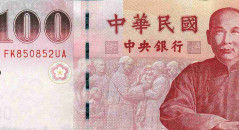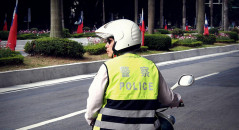Understanding the social norms that underpin everyday interactions will help smooth your path
Face and Guanxi
Much is made of the Chinese concept of face. To some extent it governs how people act in public, and is the lens through which behaviour is classified as positive or negative, as “having” or “lacking” face. In social interactions a person may act in a certain way to “give face”, such as inviting someone to sit in a favoured spot or offering the choicest morsels at dinner to a guest. A person acting in a way not consistent with the morals of society will usually be categorised as “lacking face”, while some snubbed by another person will “lose face”. The idea of face is really a refined version of the way that every society operates. Foreigners exist to some extent outside this system, and are not expected to know the intricacies of social etiquette, but in general if you are humble and polite you will be well received by the Taiwanese people around you. Boasting is very bad form, and self-deprecation (whether genuine or not) is the norm.
Taiwan is generally classified as a “high context” culture, in contrast to the “low context” cultures that most western visitors come from. This means that social interaction in Taiwan relies heavily on implicit values, body language, social status, preservation of face and harmony, and shared assumptions. In contrast an American or a German is likely to be more logical and individualistic, stating meanings directly and explicitly, and prizing clear communication. Taiwanese society places a high premium on interpersonal relationships, and sees each person as one part of a larger network.
A lot of ink has also been spilled over the idea of guanxi, a word often left untranslated, but best approximated as “relationship networks”. Roughly understood it is an informal system of favour and influence, where scratching someone’s back is expected to be remembered and repaid, often years later. Guanxi is social currency, and someone with a problem can often expend some guanxi to have the problem fixed. For minor legal disputes, processing of official documents, finding a job, getting a loan, and a host of other everyday occurrences, knowing the right person in the right position can be helpful. The system is also transferrable, so when a mediator intervenes with party A on behalf of party B, the mediator will use up guanxi that he has with party A, but gain guanxi from party B. If you are experiencing tricky problems with bureaucracy or local organisation, you can try asking around at work or with family to see if anyone you know has “pull” with the relevant people. This help will come at a price though, as later the person helping you will likely expect a favour from you. Some shady characters will use the guanxi system to great effect as local big cheeses, operating in grey areas of the law, just like in the west.
Dating and Relationships
Cross-cultural dating is common in Taiwan, and many westerners end up in a relationship with a local partner. The Taiwanese dating scene is not as permissive as that of many western countries, and foreign visitors would do well to note that local girlfriends and boyfriends may have very different expectations from a relationship and may also take it a lot more seriously than in other countries. The cultural norms that involve dress, work, sex, responsibility, and freedom are quite different, and mismatched assumptions and beliefs can often cause friction and misunderstandings. Nevertheless, most western males (straight and gay) will have little difficulty finding a romantic partner, and the same can usually be said for lesbians too, though the scene is very binary (butch/femme) in Taiwan. For straight women the situation is a little different, and the number of western female–Taiwanese male relationships are relatively small, something usually explained as a combination of typical Taiwanese male expectations of conformity and submissiveness, and western ideas of individual freedom.
For many Taiwanese people, introducing a partner to their parents is essentially equivalent to letting them know that this person is a potential husband or wife. It is a serious step, and many Taiwanese will keep their parents completely in the dark about their private life until such a time as marriage is on the cards. For unmarried Taiwanese approaching or in their thirties it is quite common for family members to arrange introductions to people they consider suitable matches. The parties introduced are under no obligation to take matters any further, but there may be strong pressure to marry and produce offspring, especially in more traditional families. Despite such pressure, an increasing number of Taiwanese women are choosing to remain unmarried, largely due to traditional expectations that a wife should care for her parents-in-law and often live in the same house as them. A desire for individual liberty and an unwillingness to have a mother-in-law and a husband ordering their affairs has lead to a large population of unmarried women in their thirties and forties. This and other—primarily financial—pressures have influenced Taiwan’s birth rate to the extent that it is now one of the lowest in the world.
LGBT issues
Taiwan is generally tolerant towards alternative sexualities, though there are minority pressure groups, including fundamentalist Christians, who take a more negative view. Taiwanese parents may have some concerns that their children, if gay, will not be able to fulfil the primary Confucian duty children have to their parents — to continue the family line. It is therefore not uncommon to find people who are open about their sexuality with their peers, but hide the truth from their family for fear of repercussions or of disappointing their parents. Attitudes towards transgender and transsexual people are confused; there is still a lack of understanding, though there is unlikely to be any real hostility.
Incidents of violence or intimidation of people with alternative sexualities are almost unheard of. Unlike many parts of the west, there is no religious injunction against homosexuality, and Taiwanese people are generally quite laissez-faire about the private lives of others, though like everywhere else, people do like to gossip about anyone or anything seen as a curiosity. Taiwan has been, and still remains to some extent, a conformist society, so gay men, in particular, may remain ambiguous about their sexuality in the workplace for the sake of “not rocking the boat”.
The larger cities around Taiwan all have gay-friendly bars, coffee shops, and spas. In Taipei, the area around the Red Theater in the Ximending district has a concentration of gay-friendly businesses, including restaurants, bars, and clothing stores. Taipei has also hosted annual Pride marches since 2003, and the 2011 version attracted around 50,000 participants, making it the largest in Asia according to organisers. The current Taiwanese president, Ma Ying-jeou, spoke at a Pride event during his time as mayor of Taipei, and while there has been some opposition from conservative politicians, both the general population of the city and the majority of the political class have demonstrated an outwardly positive stance on LGBT issues. There has been public discussion of the legalisation of same-sex marriage, and in 2013 the first legislative steps were taken towards making this a reality.
The Utopia Guide to Taiwan is a guide book aimed specifically at gay and lesbian travellers, and includes details on twelve Taiwanese cities.



